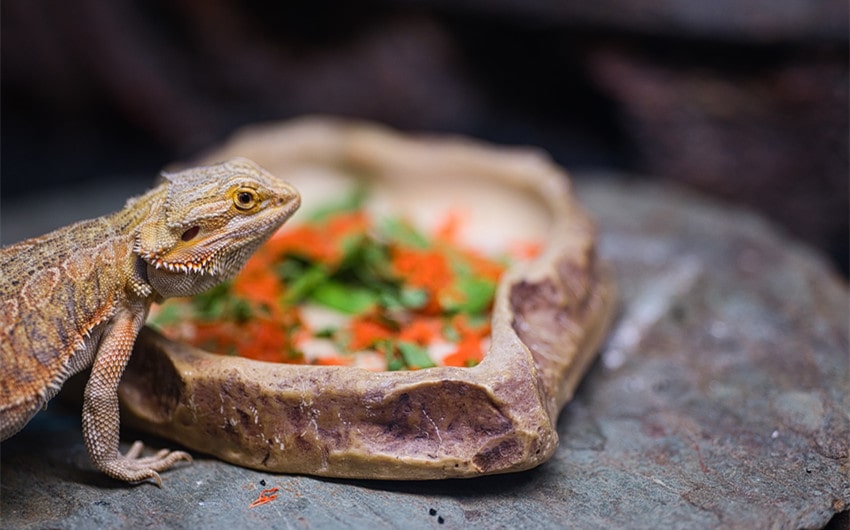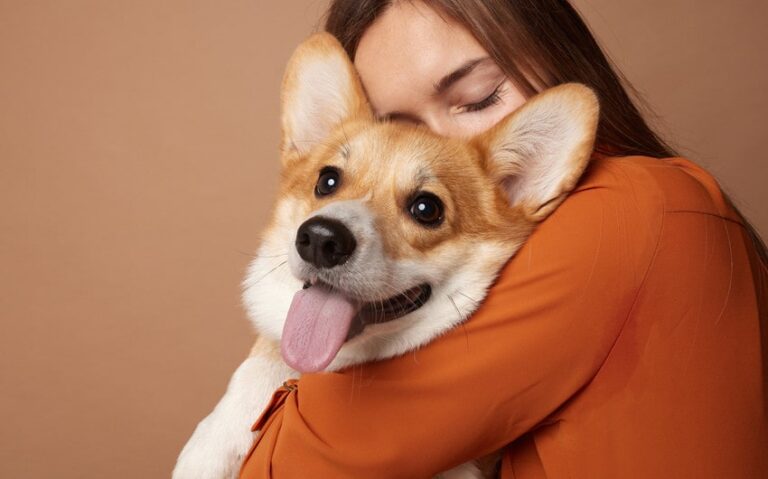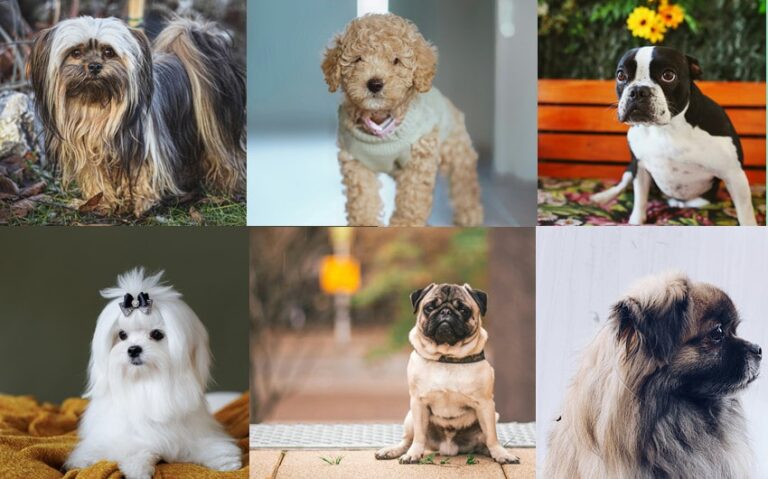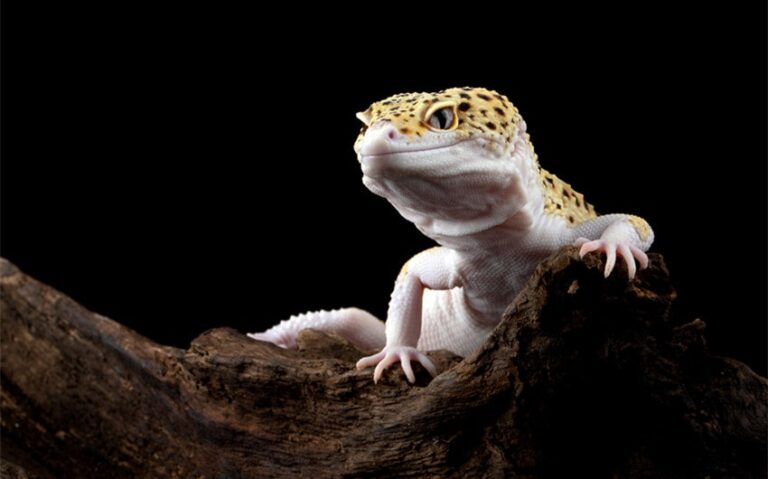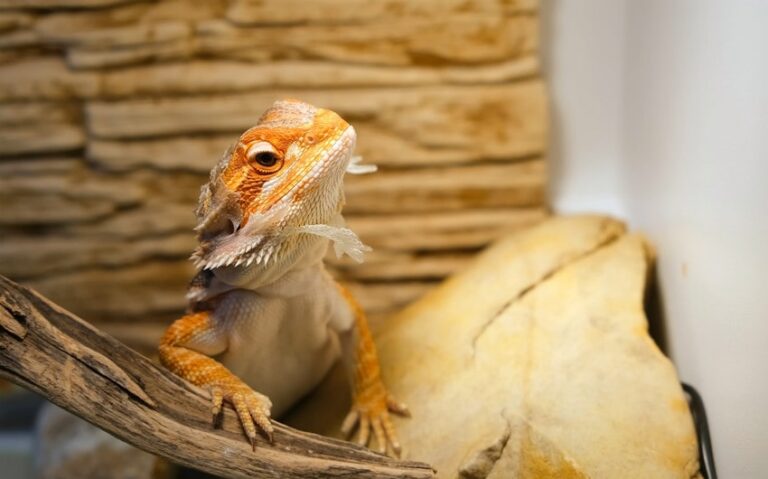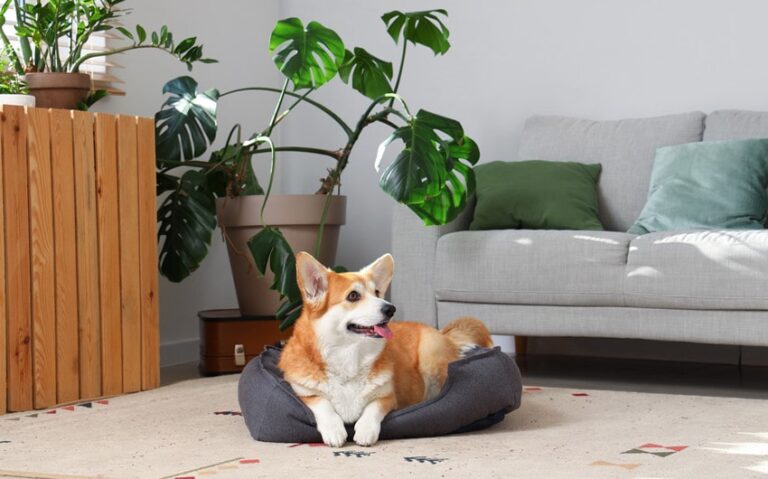Can Bearded Dragons Eat Carrots? A Complete Guide for You
Bearded dragons are fascinating pets with specific dietary needs, and as their owner, you’re likely curious about what’s safe for them to eat. One common question is, can bearded dragons eat carrots? While variety is key to keeping your bearded dragon healthy, not all veggies are suitable for regular consumption.
Carrots are colorful, nutrient-rich, and easily available, but it’s important to understand how they fit into your pet’s diet. In this article, we’ll explore whether carrots are a safe option for bearded dragons and how to offer them in a healthy, balanced way.
Can Bearded Dragons Eat Carrots?
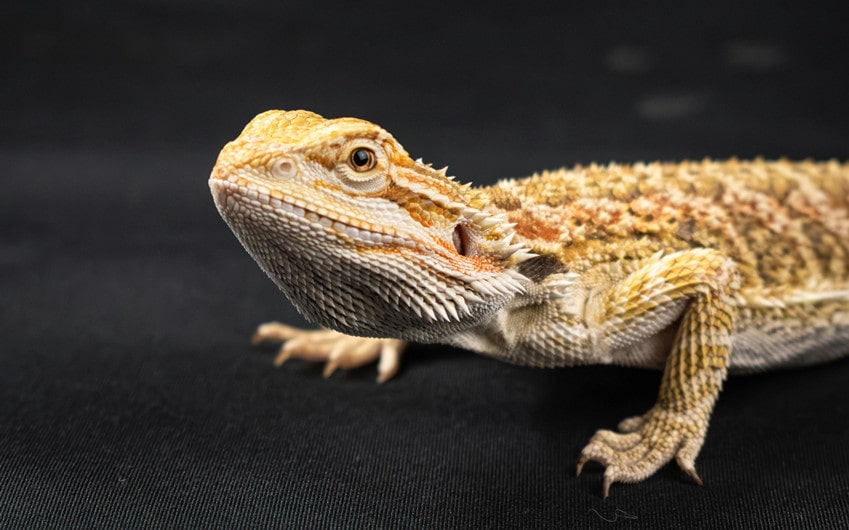
Yes, bearded dragons can eat carrots, but they should be fed in moderation. Carrots offer various nutrients that can benefit your bearded dragon, but they’re not meant to be a staple in their diet. While they are safe to consume, it’s important to understand how often and in what form carrots should be given to your pet to ensure they receive a balanced diet.
When feeding carrots to your bearded dragon, it’s important to do so in a safe and nutritious manner. Carrots can be a healthy, occasional treat, but ensuring they are prepared properly is key to avoiding any potential risks like choking, digestive issues, or nutrient imbalances. Here’s a detailed guide on how to safely feed carrots to your bearded dragon, including the best preparation methods and serving sizes.
1. Raw vs. Cooked Carrots: Which is Better?
Both raw and cooked carrots are safe for bearded dragons, but each has its pros and cons.
Raw Carrots: Feeding your bearded dragon raw carrots is a great way to offer them a crunchy, fibrous treat that retains most of the vitamins and minerals, particularly beta-carotene and vitamin A. Bearded dragons often enjoy the texture of raw carrots, and the crunch can help with keeping their teeth healthy.
- How to prepare: Grate or finely chop the raw carrots into small, bite-sized pieces. This prevents any choking hazards and makes it easier for your bearded dragon to chew and digest. Shredding carrots into thin strips is particularly effective for younger or smaller dragons that might struggle with larger pieces.
Cooked Carrots: Lightly cooked carrots are easier to chew and digest, making them a suitable option for older or smaller dragons. Cooking can soften the fibrous texture, reducing the risk of choking. However, some nutrients—particularly water-soluble vitamins like vitamin C—may be reduced when carrots are cooked. To minimize nutrient loss, steaming or lightly boiling carrots is the preferred method of cooking.
- How to prepare: Steam or boil the carrots lightly until they are just tender, but not mushy. Let the cooked carrots cool down completely before offering them to your bearded dragon. Avoid adding any seasonings, oils, or butter, as these are harmful to reptiles.
2. Grating, Chopping, or Slicing Carrots
Carrots need to be prepared in small, manageable sizes to prevent choking and ensure easy digestion. Here are the best ways to prepare carrots for your bearded dragon:
- Grating: Grating carrots into fine shreds is one of the safest ways to serve them to your bearded dragon. The small, fine pieces are easy to eat and less likely to cause choking. Grated carrots are also easier for bearded dragons to chew and digest, especially for juveniles or smaller dragons.
- Chopping: If you prefer to chop carrots, make sure the pieces are very small and bite-sized. Carrots can be quite dense, so smaller chunks help your bearded dragon chew them more easily. For larger dragons, small diced pieces may be appropriate, but always err on the side of smaller portions.
- Slicing: You can slice carrots into thin, narrow strips, which also minimizes the risk of choking. Thin slices can mimic the texture of leafy greens, making them easier for your bearded dragon to handle.
Always make sure that the carrots are fresh and clean before preparation. It’s important to wash them thoroughly to remove any dirt or pesticides, even if you plan to peel the carrots.
3. Portion Size and Frequency
When feeding carrots to your bearded dragon, portion size and frequency are crucial to maintaining a balanced diet. Since carrots are nutrient-dense, they should be considered an occasional treat, not a staple food.
- Portion Size: A small amount of carrot goes a long way. For adult bearded dragons, a few small shreds, about the size of a teaspoon, can be mixed with their regular vegetables as part of a meal. For juveniles, an even smaller amount is recommended. Carrots should make up only a small portion of their overall diet, ensuring they get a mix of other vegetables with higher calcium levels.
- Frequency: Carrots should be offered no more than once or twice a week to prevent any imbalances in nutrients, particularly vitamin A and phosphorus. Alternating carrots with other safe vegetables, such as collard greens, mustard greens, and squash, ensures your bearded dragon is getting a wide variety of nutrients without overloading on any single food.
4. Mixing Carrots with Other Vegetables
Carrots can be served as part of a balanced meal by mixing them with other vegetables that are beneficial for bearded dragons. The goal is to create a salad-like mix of various vegetables that provide a range of nutrients, ensuring your bearded dragon receives a well-rounded diet.
- High-Calcium Greens: Since carrots are relatively low in calcium compared to some other vegetables, it’s a good idea to serve them with calcium-rich greens like collard greens, dandelion greens, and mustard greens. This helps balance the calcium-to-phosphorus ratio, reducing the risk of calcium deficiency.
- Other Vegetables: You can also mix carrots with bell peppers, zucchini, and squash to create a colorful and nutritious meal. These vegetables complement each other well and provide a variety of textures, which can help keep your bearded dragon engaged and interested in their food.
5. Avoiding Carrot Tops in Large Quantities
While carrot tops (the leafy greens that grow above the carrot) are safe for bearded dragons, they should be fed in moderation. Carrot tops contain oxalates, which can bind to calcium and inhibit absorption, leading to potential health issues if consumed in large quantities.
- How to serve carrot tops: If you choose to include carrot tops in your bearded dragon’s diet, do so sparingly and mix them with other greens that are lower in oxalates. This helps ensure your bearded dragon isn’t getting too much oxalate, which could negatively impact their calcium levels.
6. Avoid Additives and Processed Carrots
When feeding carrots to bearded dragons, it’s essential to stick to fresh, natural carrots. Avoid feeding processed or preserved carrots, such as canned or pickled carrots, as these often contain added salt, preservatives, or sugars that can be harmful to your bearded dragon’s health. Additionally, steer clear of pre-seasoned or flavored carrots.
Nutritional Benefits of Carrots for Bearded Dragons
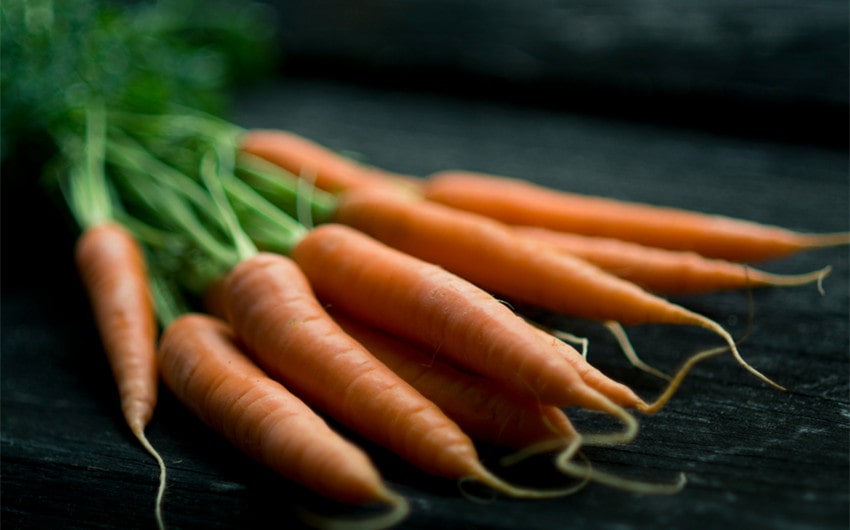
Carrots are packed with essential nutrients that can be beneficial for bearded dragons when fed in moderation. Although they shouldn’t be a daily staple in their diet, the vitamins and minerals found in carrots can complement a well-balanced diet of greens, vegetables, and insects. Let’s explore the specific nutritional benefits of carrots for your bearded dragon.
1. Rich in Vitamin A (Beta-Carotene)
Carrots are best known for their high content of beta-carotene, which the body converts into vitamin A. Vitamin A plays a crucial role in maintaining healthy skin, vision, and immune function. In bearded dragons, this vitamin helps promote eye health, which is vital for hunting and navigating their environment.
- Why it’s important: Adequate vitamin A supports the healthy development of skin, eyes, and the immune system. It helps prevent issues such as eye infections or skin shedding problems. However, it’s important to be cautious about overfeeding vitamin A-rich foods, as too much can lead to hypervitaminosis A, a condition caused by vitamin A toxicity.
2. Good Source of Fiber
Carrots are also a good source of dietary fiber, which is important for supporting healthy digestion in bearded dragons. Fiber helps regulate bowel movements, preventing constipation, and supports a healthy gut, which is crucial for nutrient absorption.
- Why it’s important: Fiber contributes to a healthy digestive system by keeping things moving smoothly in the gastrointestinal tract. Bearded dragons can sometimes experience constipation, particularly if they aren’t getting enough hydration or appropriate foods in their diet. Carrots, with their fiber content, can help maintain healthy digestion.
3. Vitamin C for Immune Health
Carrots contain vitamin C, a powerful antioxidant that supports the immune system. While bearded dragons can synthesize vitamin C on their own, providing an additional source through their diet can help boost their overall health.
- Why it’s important: Vitamin C helps protect cells from damage caused by free radicals and enhances immune function, ensuring your bearded dragon can fend off infections and stay healthy.
- Added protection: In small amounts, the extra vitamin C from carrots can help bolster your bearded dragon’s immune system, particularly if they are under stress or recovering from illness.
4. Antioxidants for Overall Health
Carrots are rich in antioxidants, including beta-carotene and other carotenoids, which help protect the body’s cells from oxidative stress. These antioxidants neutralize free radicals, molecules that can damage cells and lead to aging or illness.
- Why it’s important: Antioxidants support long-term health by reducing the risk of inflammation and oxidative stress, which can weaken your bearded dragon’s immune system over time. Feeding small amounts of carrots as an occasional treat can provide these protective antioxidants.
5. Low in Fat
Carrots are naturally low in fat, making them a good choice for a healthy treat. While fat is an essential nutrient for bearded dragons, their primary fat sources should come from protein-rich insects like crickets and mealworms. Carrots provide additional nutrition without adding unnecessary fat to their diet.
- Why it’s important: A low-fat diet helps prevent obesity and other related health issues in bearded dragons, such as fatty liver disease. Carrots can be an excellent addition to a low-fat meal plan when served in moderation.
6. Hydration Support
Carrots have a high water content, which can aid in keeping your bearded dragon hydrated. Proper hydration is crucial for their digestive health, skin shedding, and overall bodily function.
- Why it’s important: Bearded dragons, especially those living in warmer environments, need to stay hydrated to avoid health problems like impaction or dehydration. Carrots can contribute to their hydration levels, especially for dragons that don’t drink water frequently.
- Supplemental hydration: While not a primary source of water, adding carrots to your dragon’s diet can help boost hydration when served alongside leafy greens and other moisture-rich vegetables.
Risks of Feeding Carrots to Bearded Dragons
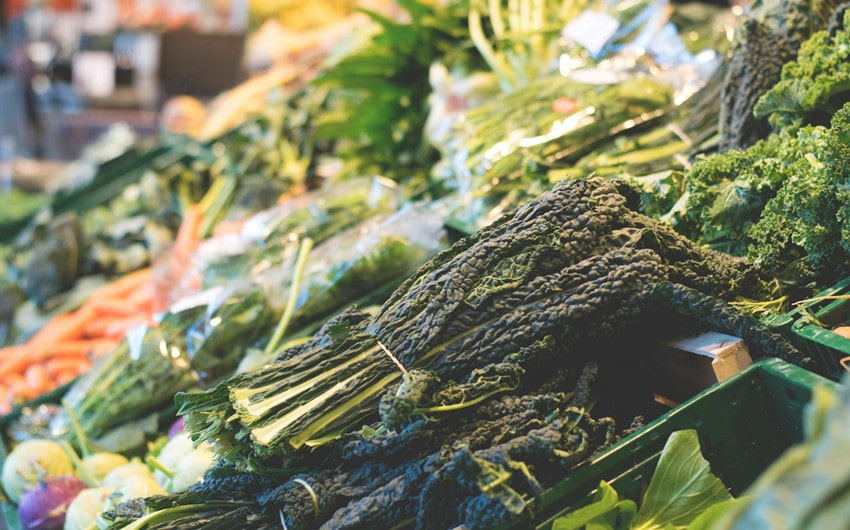
While carrots can offer several nutritional benefits to bearded dragons, there are also some potential risks involved when feeding them. It’s important to be aware of these risks to ensure that carrots are introduced into your bearded dragon’s diet safely and in moderation. Overfeeding carrots or not preparing them correctly can lead to health complications. Let’s explore the primary risks associated with feeding carrots to bearded dragons.
1. Vitamin A Toxicity (Hypervitaminosis A)
One of the most significant risks of feeding carrots to bearded dragons is the potential for vitamin A toxicity, also known as hypervitaminosis A.
- Why It’s Risky: Excessive vitamin A in a bearded dragon’s system can lead to toxicity, especially if they are already receiving vitamin A supplements or eating other vitamin A-rich foods. Hypervitaminosis A can cause symptoms such as swelling, lethargy, decreased appetite, and even organ damage in severe cases.
- How to Avoid It: To prevent vitamin A toxicity, carrots should only be given as an occasional treat, not as a daily food. Additionally, if your bearded dragon is on a vitamin A supplement, consult your veterinarian to ensure you’re not overloading their system with this nutrient. Feeding carrots once or twice a week in small portions is generally safe.
2. Imbalanced Calcium-to-Phosphorus Ratio
A crucial aspect of a bearded dragon’s diet is maintaining a proper calcium-to-phosphorus ratio. Bearded dragons need calcium for bone health and to prevent metabolic bone disease (MBD), a common and serious condition in reptiles caused by calcium deficiency. Carrots contain phosphorus, which can bind with calcium in the body, making it less available for absorption.
- Why It’s Risky: An imbalanced ratio of calcium to phosphorus can lead to calcium deficiency in your bearded dragon. Carrots, while nutritious, are relatively high in phosphorus compared to calcium. Over time, if too much phosphorus is consumed without enough calcium to balance it out, it can weaken your dragon’s bones and lead to metabolic bone disease.
- How to Avoid It: To maintain a healthy balance, be sure to offer calcium-rich foods like collard greens, mustard greens, and dandelion greens alongside carrots. You can also sprinkle calcium supplements (without vitamin D3 if your dragon gets plenty of UVB light) on their meals a few times a week to help prevent any deficiencies.
3. Oxalates and Their Effect on Calcium Absorption
Carrots contain oxalates (oxalic acid), which can bind with calcium in the digestive tract, making it harder for the body to absorb. This can further exacerbate calcium deficiency in bearded dragons if oxalate-rich foods like carrots are fed too frequently.
- Why It’s Risky: High levels of oxalates in a bearded dragon’s diet can interfere with calcium absorption, increasing the risk of conditions like metabolic bone disease. Oxalates also contribute to the formation of kidney stones in reptiles when consumed in excess.
- How to Avoid It: The key to managing oxalates in your bearded dragon’s diet is moderation. Feed carrots as an occasional treat and pair them with calcium-rich, low-oxalate vegetables like turnip greens, endive, or escarole. This approach will help ensure your dragon’s calcium needs are met while minimizing the effects of oxalates.
4. Digestive Issues and Choking Hazards
Feeding your bearded dragon large, uncut pieces of carrot can pose a choking hazard or lead to digestive blockages, particularly for younger or smaller dragons. Carrots are dense and crunchy, which can make them difficult for your dragon to chew and swallow properly.
- Why It’s Risky: Improperly prepared carrots can cause choking or gastrointestinal issues if your bearded dragon has difficulty chewing or digesting large chunks. This is especially true for smaller dragons or dragons with dental issues.
- How to Avoid It: Always ensure that carrots are properly prepared before offering them to your bearded dragon. Grate or finely chop raw carrots into small, bite-sized pieces to reduce the risk of choking. If you prefer to cook the carrots, steam or boil them lightly to soften them while retaining most of the nutrients. Be careful not to overcook, as this can reduce their nutritional value.
5. Overfeeding Carrots as a Staple Food
Carrots should not be considered a staple food for bearded dragons. They are high in certain nutrients, such as vitamin A and beta-carotene, but they lack other essential nutrients needed for a balanced diet, like high calcium levels and diverse minerals. Overfeeding carrots can lead to an unbalanced diet that doesn’t meet all of your dragon’s nutritional needs.
- Why It’s Risky: Bearded dragons require a varied diet of leafy greens, vegetables, and insects to meet their nutritional requirements. Feeding too many carrots can crowd out other more beneficial vegetables and lead to deficiencies in calcium and other critical nutrients.
- How to Avoid It: Carrots should be offered as an occasional treat, not a mainstay in your dragon’s diet. Aim for a diet that consists of around 70-80% leafy greens and vegetables, with carrots making up only a small portion of the veggie intake. Ensure that your dragon is receiving a mix of different vegetables and insects for optimal health.

